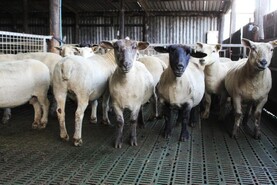SIPTU has rejected meat industry calls for additional non-EU work permits for the sector, despite processors warning that severe labour shortages could impact cattle throughput during the busy back-end of the year.
Meat factories are understood to have sought over 1,500 additional employment permits for non-EU workers in meetings with Government representatives over the summer.
Meat Industry Ireland (MII) said processors were struggling to deal with the current low cattle throughput levels due to staff shortages, and will be seriously challenged if faced with a surge in numbers over the coming months.
SIPTU claimed that improving both the pay and conditions of meat sector workers offered a more effective and long-term solution to the industry’s labour problems
While data from the Department of Enterprise, Trade and Employment shows that more than 720 work permits for non-EU staff were taken up by meat processors between January and July this year, industry sources have warned that some factories are facing serious labour shortages and that additional workers are urgently required. However, SIPTU claimed that improving both the pay and conditions of meat sector workers offered a more effective and long-term solution to the industry’s labour problems than issuing more permits to employers for additional non-EU staff.
Workers simply cannot make ends meet on these conditions
“The question must be asked why workers are not taking up the vacancies available in the meat processing industry. The answer is that, with a few notable exceptions, the pay, terms and conditions pertaining in the industry at general operative level, are at the absolute minimum that can be legally applied,” said Denis Gormalley of SIPTU.
“Workers simply cannot make ends meet on these conditions. Many of the workers in this industry depend on the Government to subsidise their income through welfare family income supports,” he said.
Gormalley called on meat industry representatives to engage with SIPTU to determine pay and conditions of employment for the industry.
MII director Cormac Healy declined to comment on SIPTU’s position, but he confirmed that the shortage of labour remained a serious and pressing problem for meat processors.
A recent report by Grant Thornton claimed that there were currently around 500,000 vacancies in the British food industry
The loss of many eastern European workers who returned home during the COVID-19 pandemic, as well as increased competition for staff from sectors such as construction, has made sourcing workers a major issue for meat processors.
Some factories have been forced to reduce line speeds and consolidate boning operations due to the continuing shortage of labour.
Similar problems are being reported in Britain. A recent report by Grant Thornton claimed that there were currently around 500,000 vacancies in the British food industry. The UK food sector has also been impacted by a serious shortage of HGV drivers.
This amounts to over one million people leaving the industry
Worryingly, the Grant Thornton report noted that the UK food sector also has an aging workforce, with estimates suggesting that one in four workers are due to retire within the next 10 years. This amounts to over one million people leaving the industry.
Meanwhile, meat processing plants in Britain have ramped up the use of prisoners, who are on temporary release under licence, to plug the labour shortfall.






 This is a subscriber-only article
This is a subscriber-only article











SHARING OPTIONS: